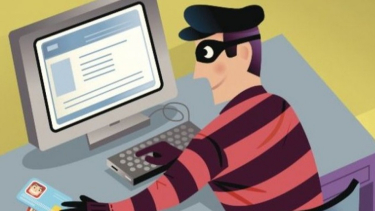How to Avoid Becoming a Phishing Victim During Eid Holiday
- India Today
VIVA – Eid holiday makes people start actively looking for recreational resources such as interesting places to visit, cheap places to stay, and tickets at attractive prices to discount promos from bank services.
This will be an opportunity for cybercriminals. Getting infected with malware, becoming a victim of online scams, or other cyber threats will only get worse during the holiday season.
The most common yet effective cyber threat that often happens is phishing, which is preventable. But still, if cyber criminals manage to create a clone of a real website that looks very impressive and comes with tempting offers, many people forget this simple step and do not look closely at the web URLs they open.
For example, according to the latest Kaspersky statistics, 356,786 finance-related phishing attacks were detected and blocked against users in Indonesia during the first half of 2022. Of these, 166,857 incidents targeted payment systems.
Ilustrasi penipuan
- U-Report
In addition, during the first half of last year, 20,603 detections of phishing attempts in Indonesia were related to online banking. This data comes from anonymized data based on the triggering of a deterministic component in Kaspersky's Anti-Phishing system on users' computers.
This component detects all pages with phishing content that a user has attempted to open by following a link in an email or web message as long as the link to the page is in Kaspersky's database.
"During big celebrations, everyone wants to order something nice without having to spend too much money," added Kaspersky Asia Pacific Managing Director Chris Connell, in a statement on Friday.
He further explained that phishing is constantly evolving and improving its attack approach. There is only one main thing we need to know if the topic is trending, it is likely to be utilized by fraudsters.
The best way to know which topics are trending is to read and watch the news. When it comes to phishing and online scams, knowledge is the ultimate shield, "We should always know how to avoid them and most importantly, use security solutions," Connell added.
Well, here are some tips to avoid phishing during the Eid holiday.
1. Be cautious of unsolicited emails and messages, if you receive an unexpected email or message asking for sensitive information or urging you to click on a link, be wary. Do not click on any links or download any attachments unless you are sure they are safe.
2. Just buy tickets and book hotel rooms, either from the company directly or through reputable ticketing or hotel sites.
3. Use two-factor authentication, two-factor authentication adds an extra layer of security to your accounts by requiring a second form of authentication, such as a code sent to your phone or a fingerprint scan.
4. Avoid using public wifi. Don't even use hotel room wifi unless it's encrypted and password protected. Consider using a virtual private network (VPN).
5. Consider using a credit card.
6. If paying online, make sure the machine and browser (and all software) are completely up-to-date with the latest version.



























